Subtraction practice Word Problems Worksheets for Ages 5-9
21 filtered results
-
From - To
Enhance your child's math skills with our specially designed "Subtraction Practice Word Problems Worksheets for Ages 5-9." Tailored to provide fun and engaging exercises, these worksheets help young learners apply subtraction in real-life scenarios, thus improving their critical thinking and problem-solving abilities. Whether your child is just starting with basic subtraction or ready for more advanced problems, our resources cater to various skill levels. With vibrant illustrations and clear instructions, these worksheets make learning enjoyable and effective. Empower your child with the confidence to master subtraction through real-world applications, available now for print and practice!
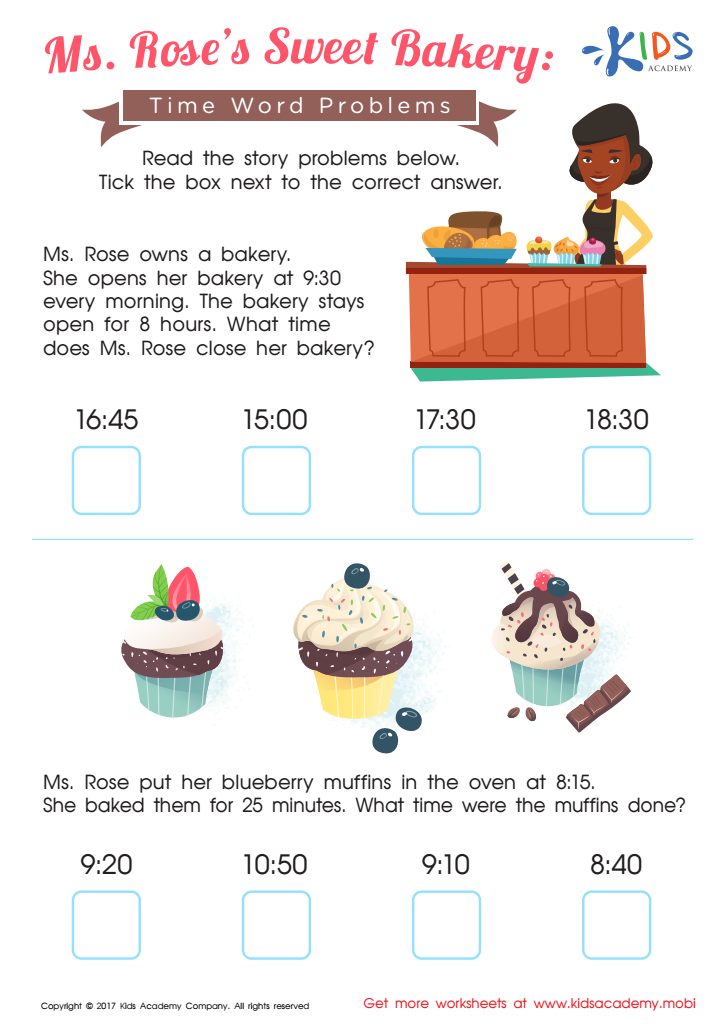

Ms. Roseв's Sweet Bakery Time Worksheet
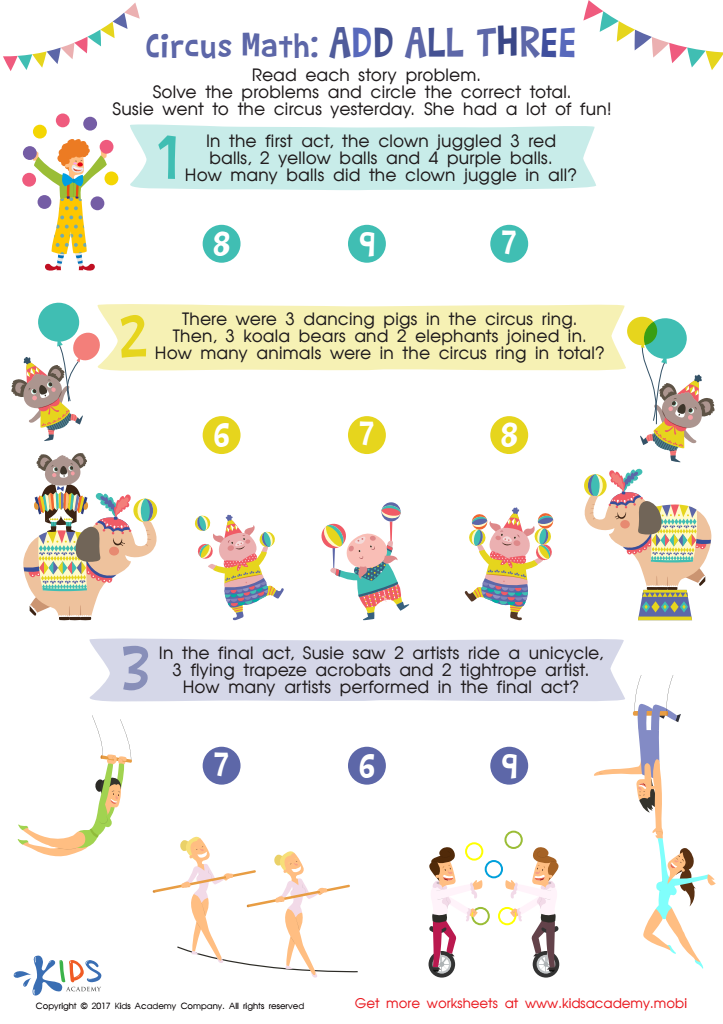

Circus Math Printable
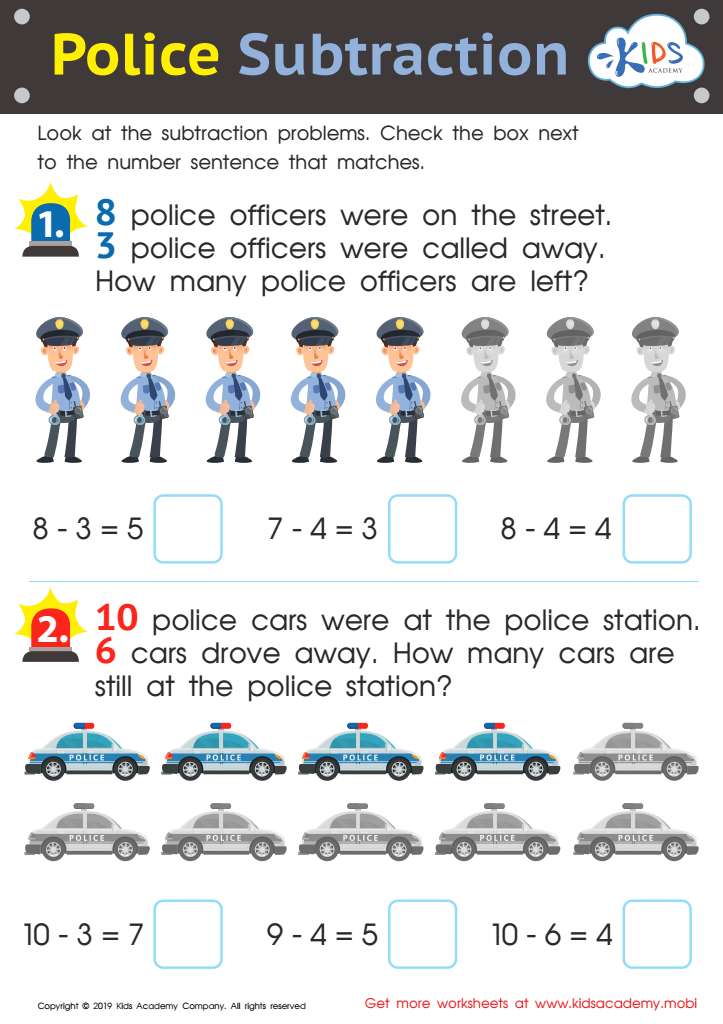

Police Subtraction Worksheet
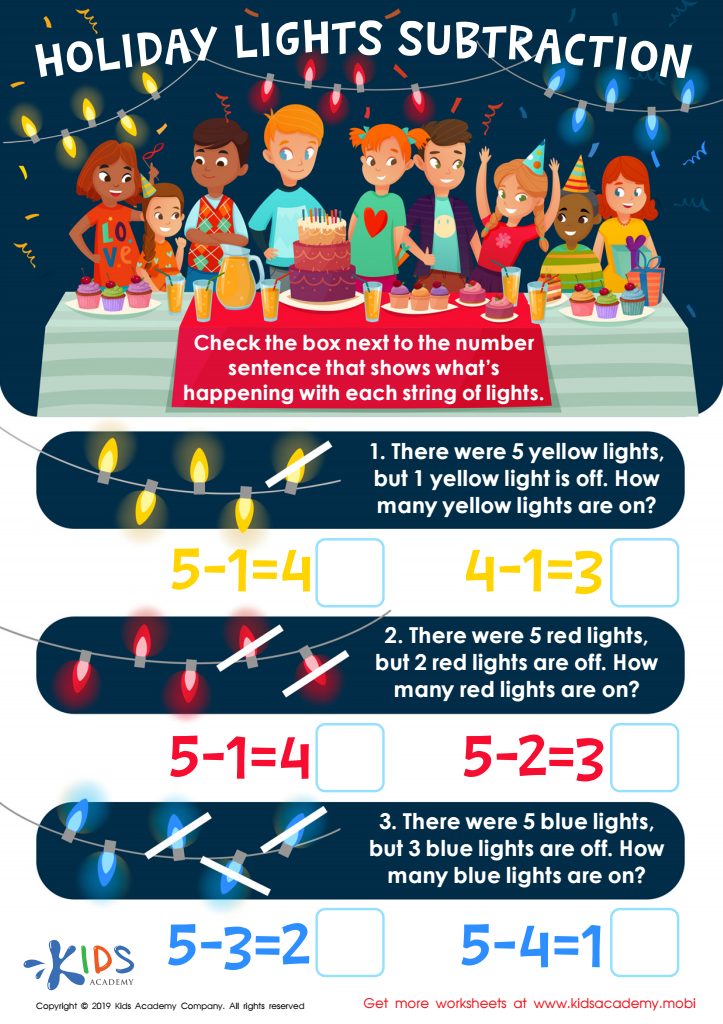

Holiday Lights Subtraction Worksheet
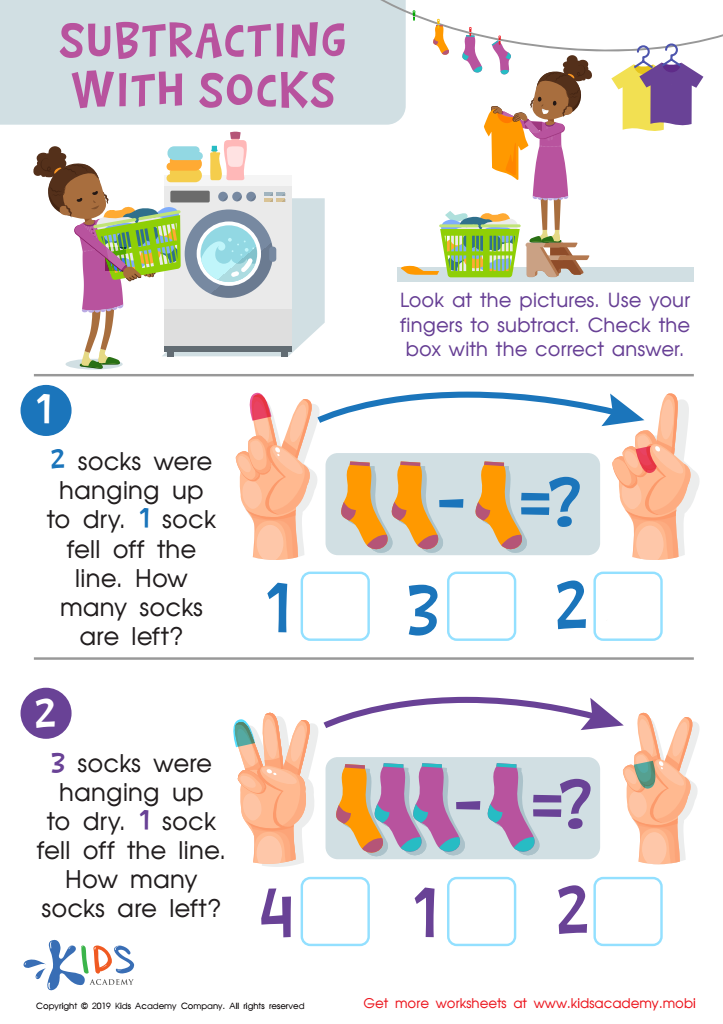

Subtracting Socks Worksheet
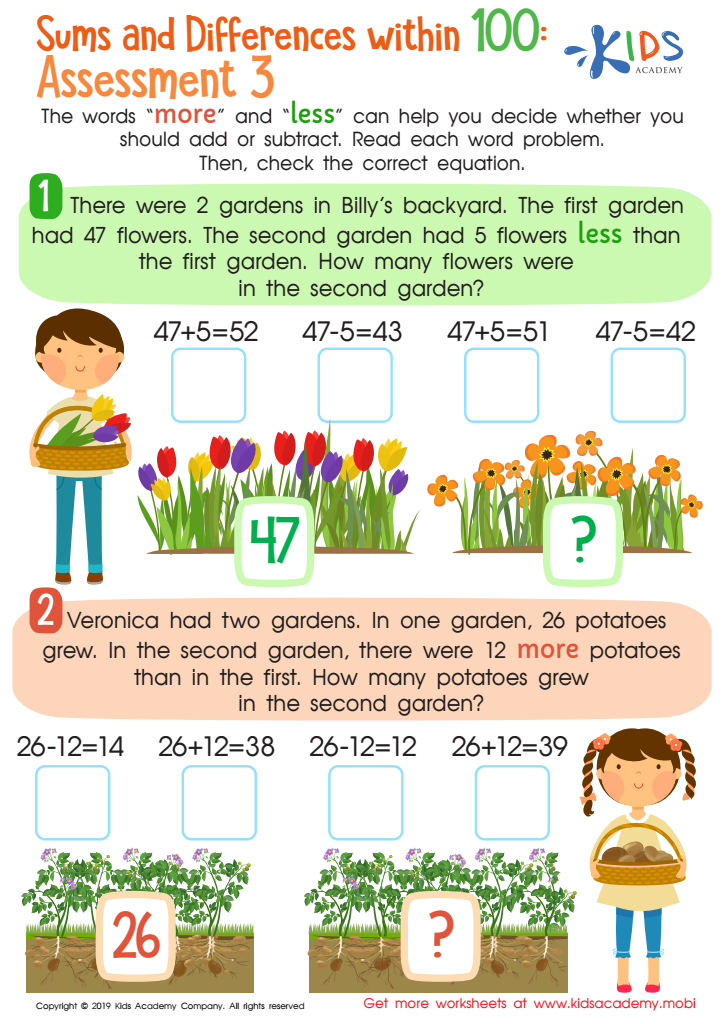

Sums and Differences Within 1 - Assessment 1 Worksheet
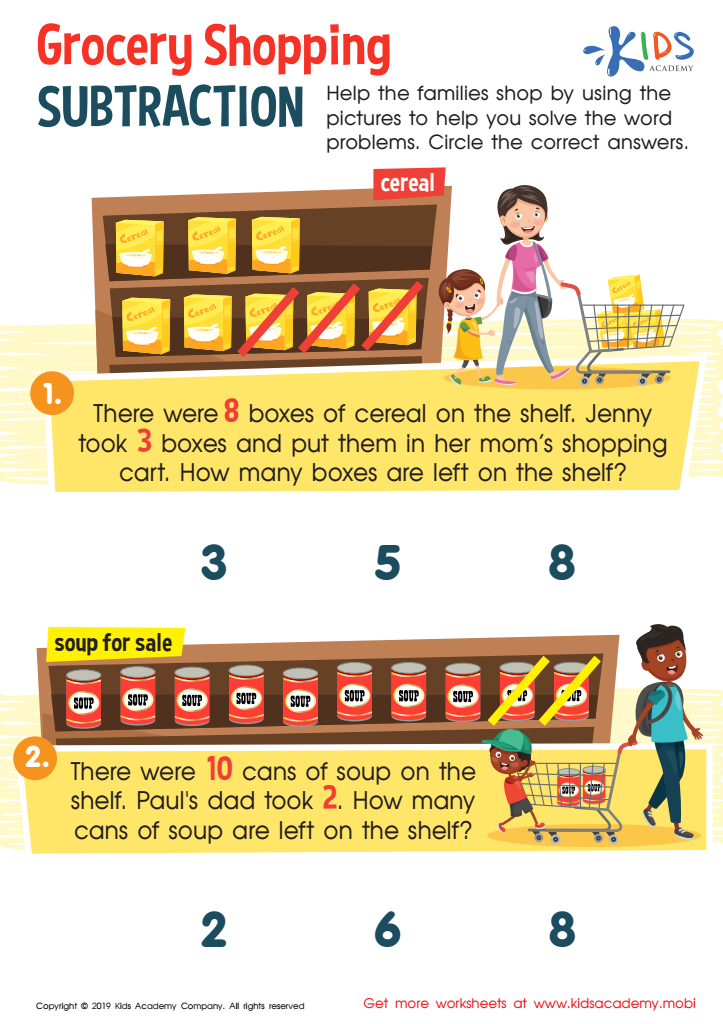

Grocery Shopping Subtraction Worksheet
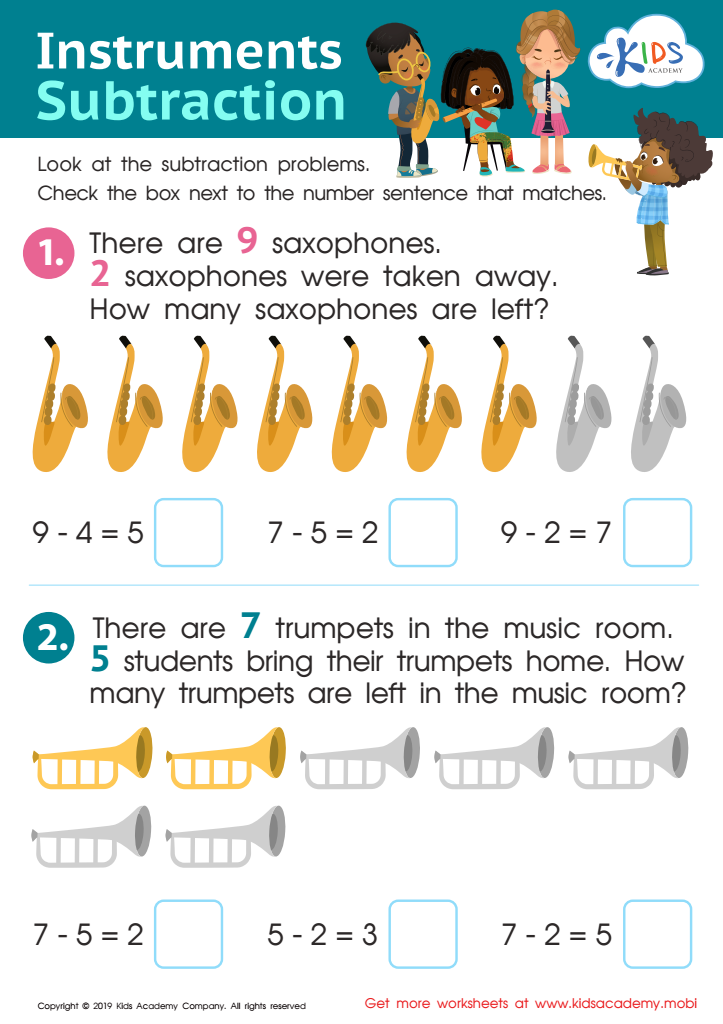

Instrument Subtraction Worksheet
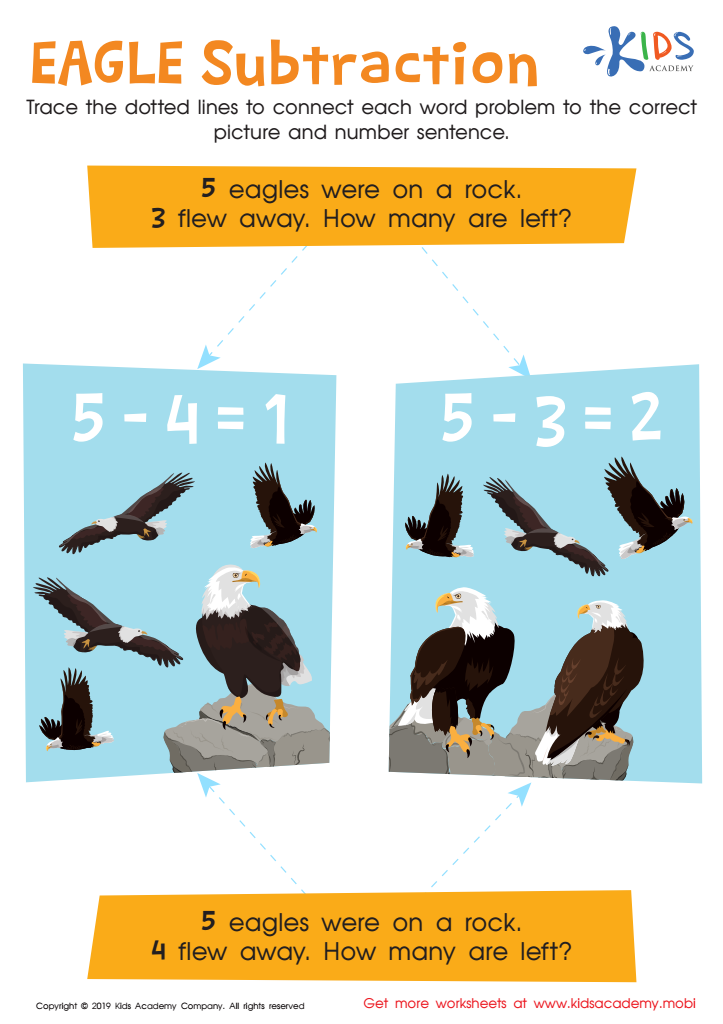

Eagle Subtraction Worksheet
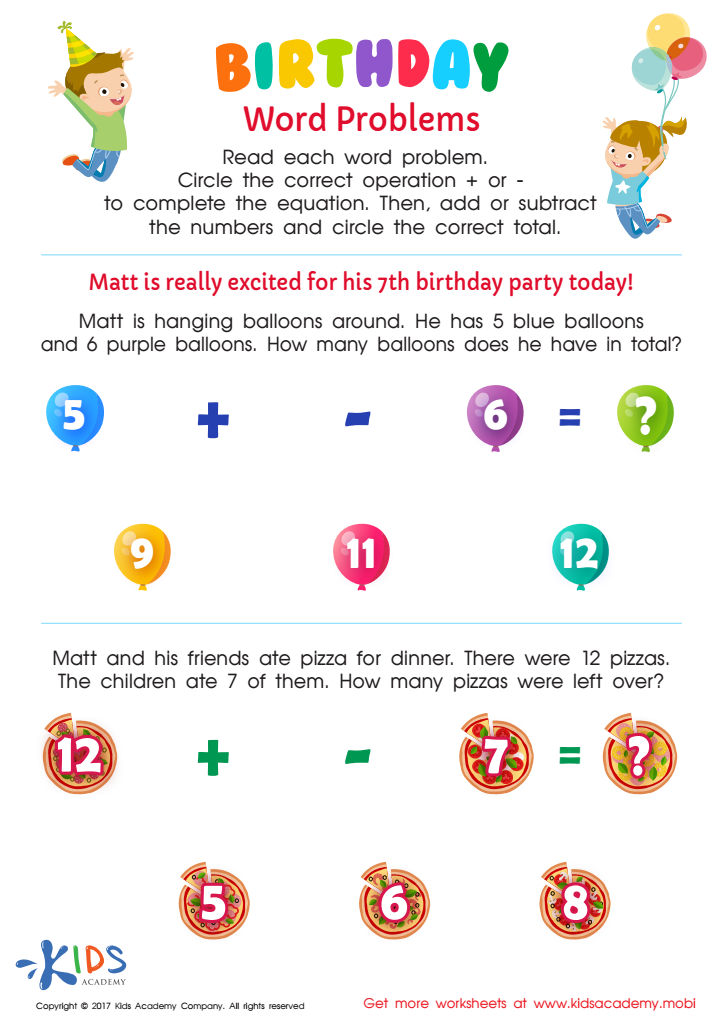

Birthday Word Problems Substraction Worksheet
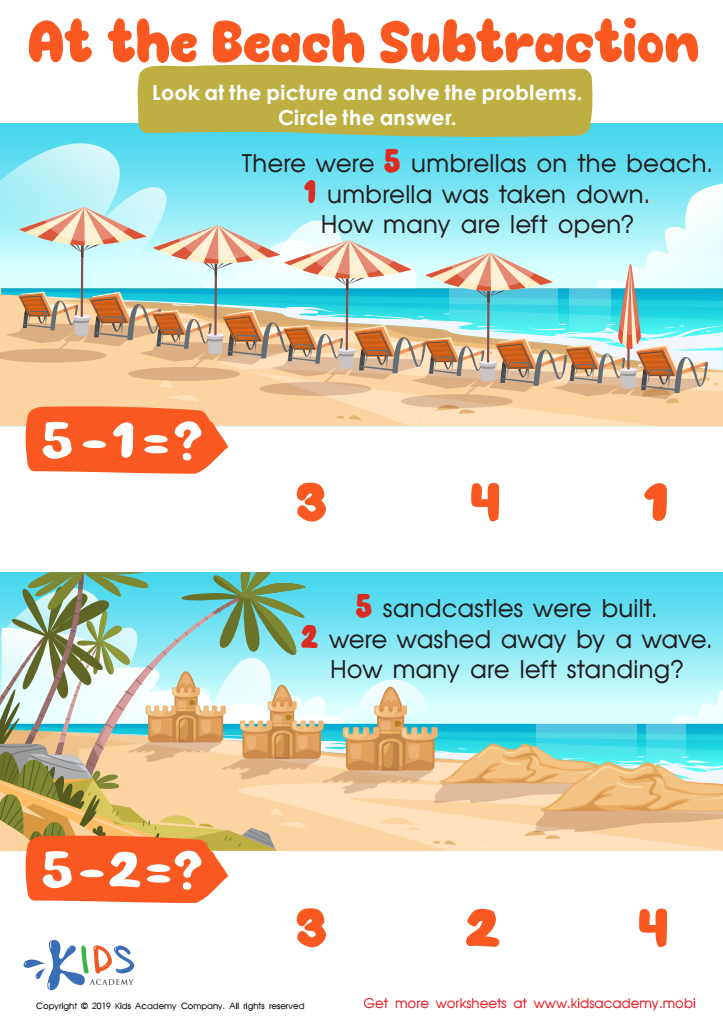

At the Beach Subtraction Worksheet
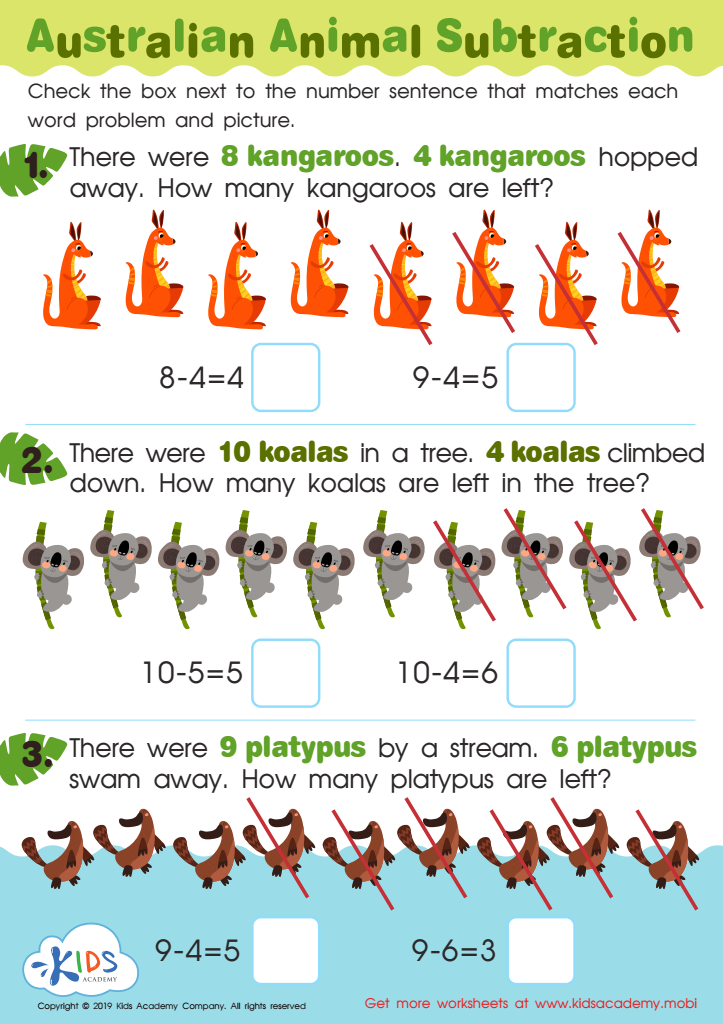

Australian Animal Subtraction Worksheet
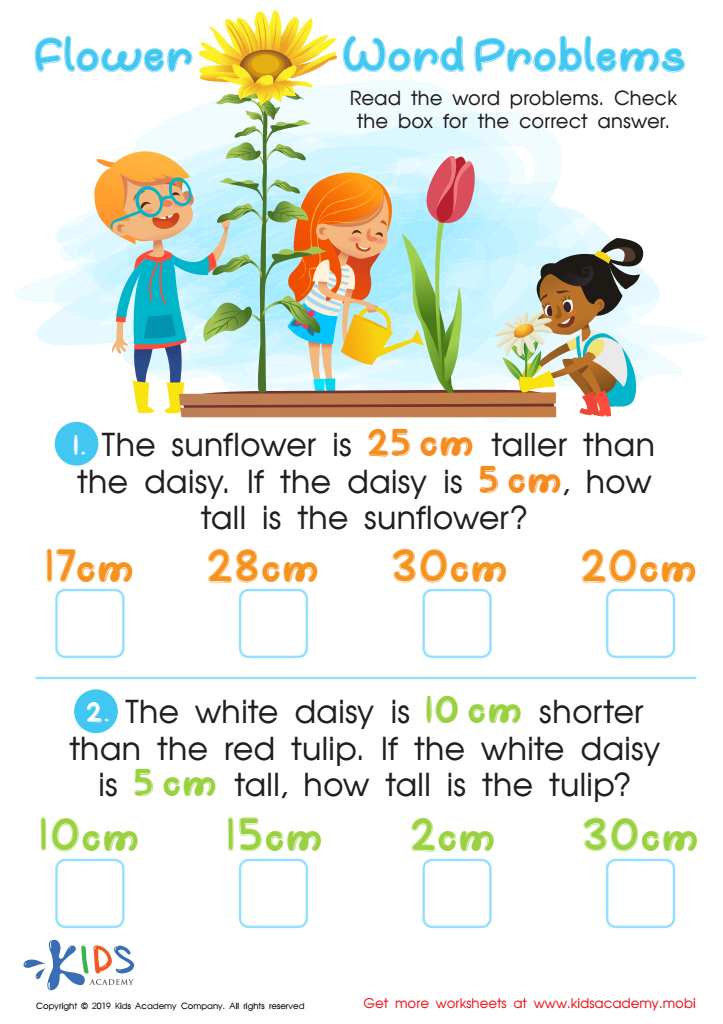

Flower Word Problems Worksheet
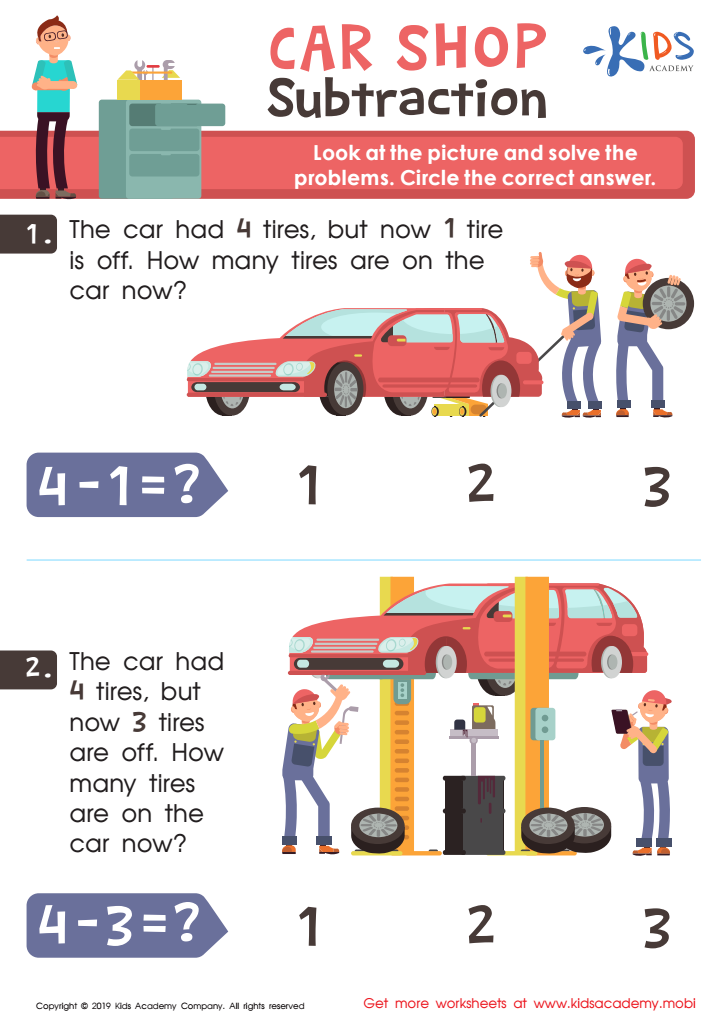

Car Shop Subtraction Worksheet
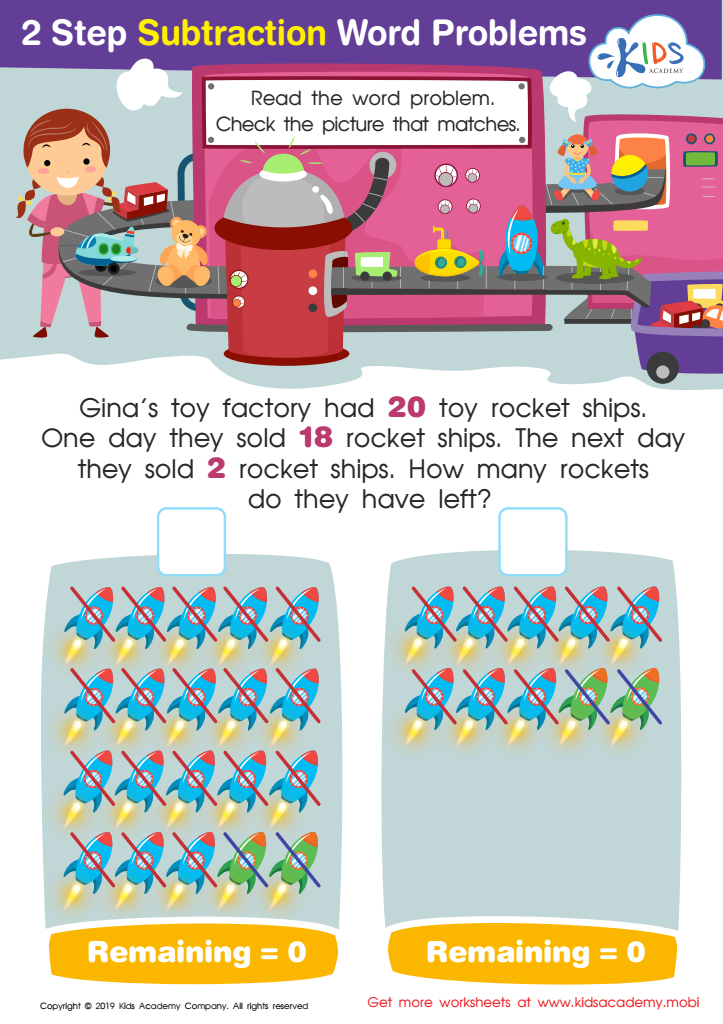

Step Subtraction Word Problems Worksheet
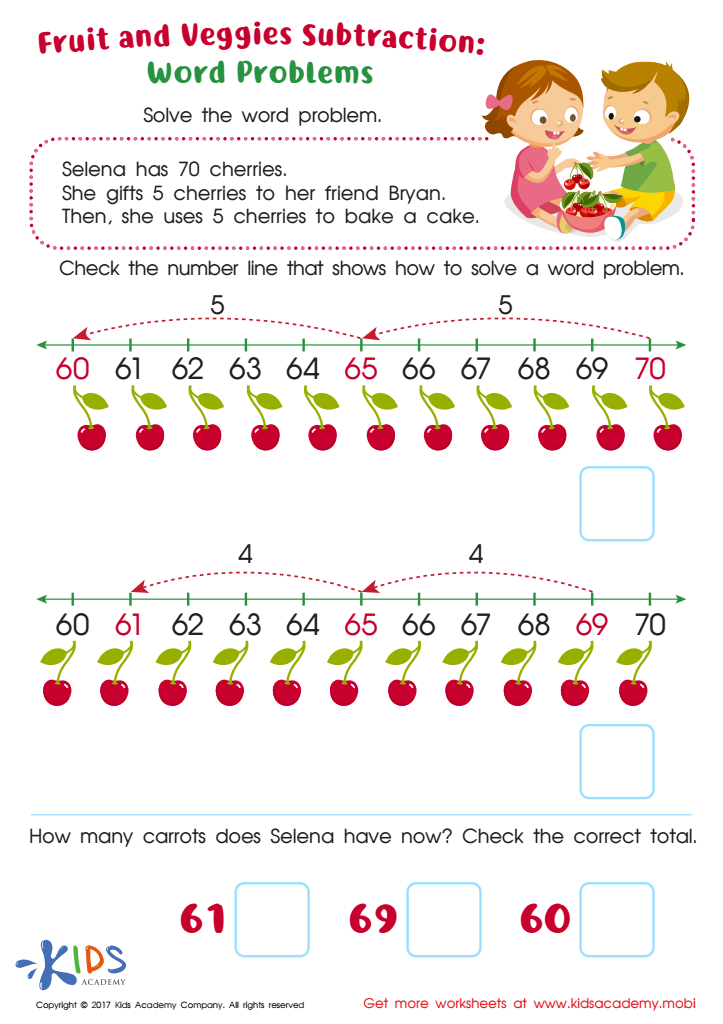

Subtraction Word Problems Free Printable
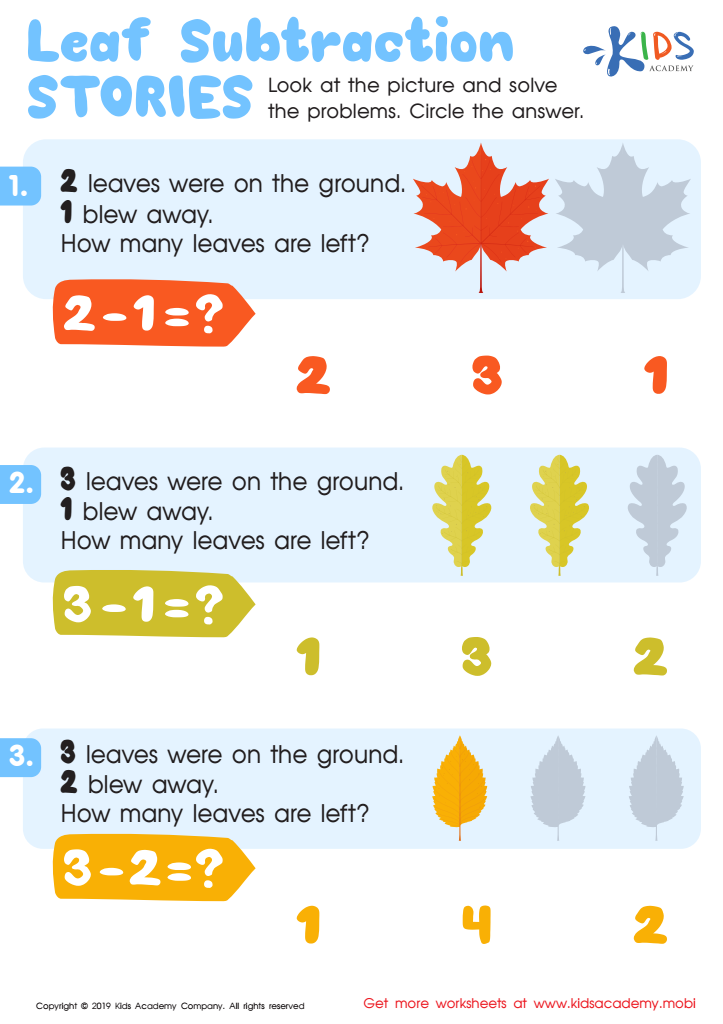

Leaf Subtraction Stories Worksheet
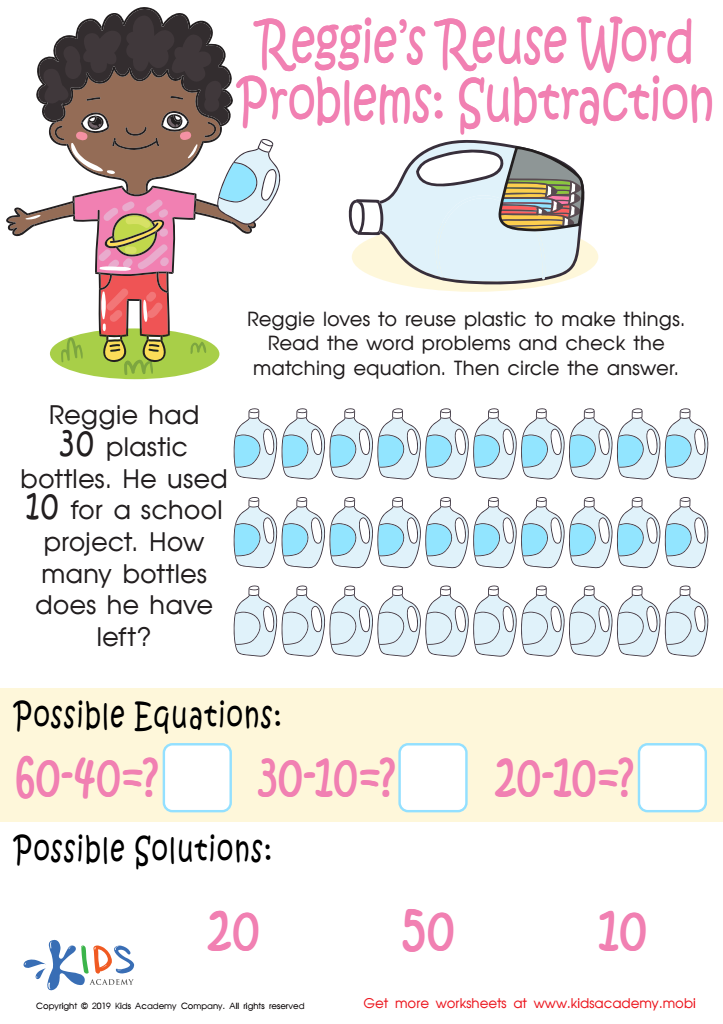

Reggie's Reuse Word Problems: Subtraction Worksheet
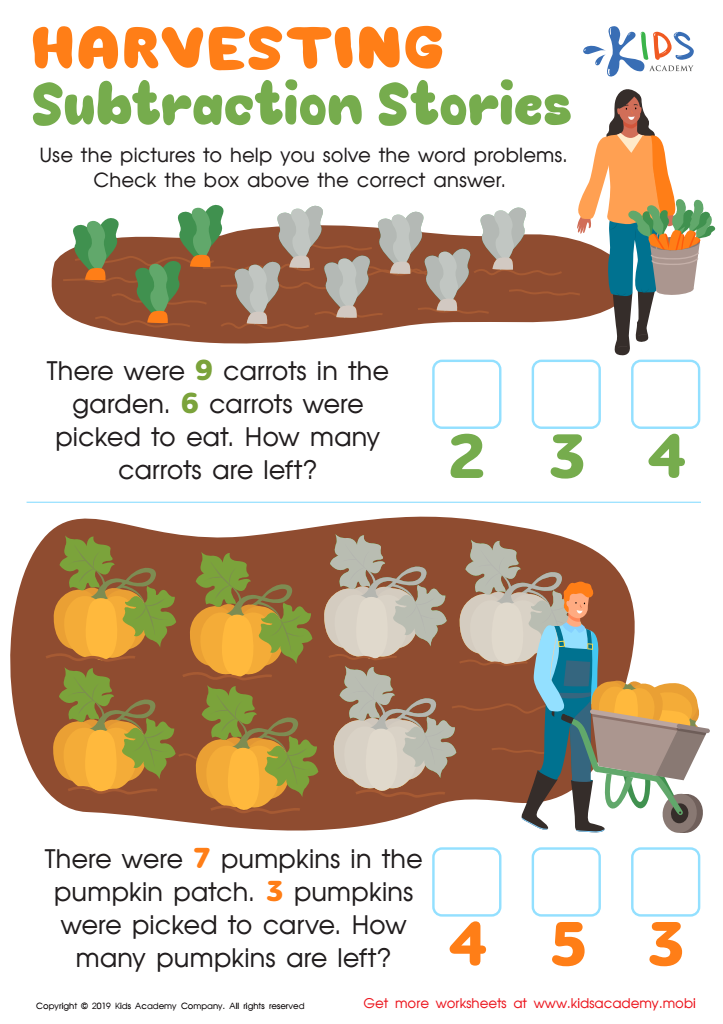

Harvesting Subtraction Stories Worksheet
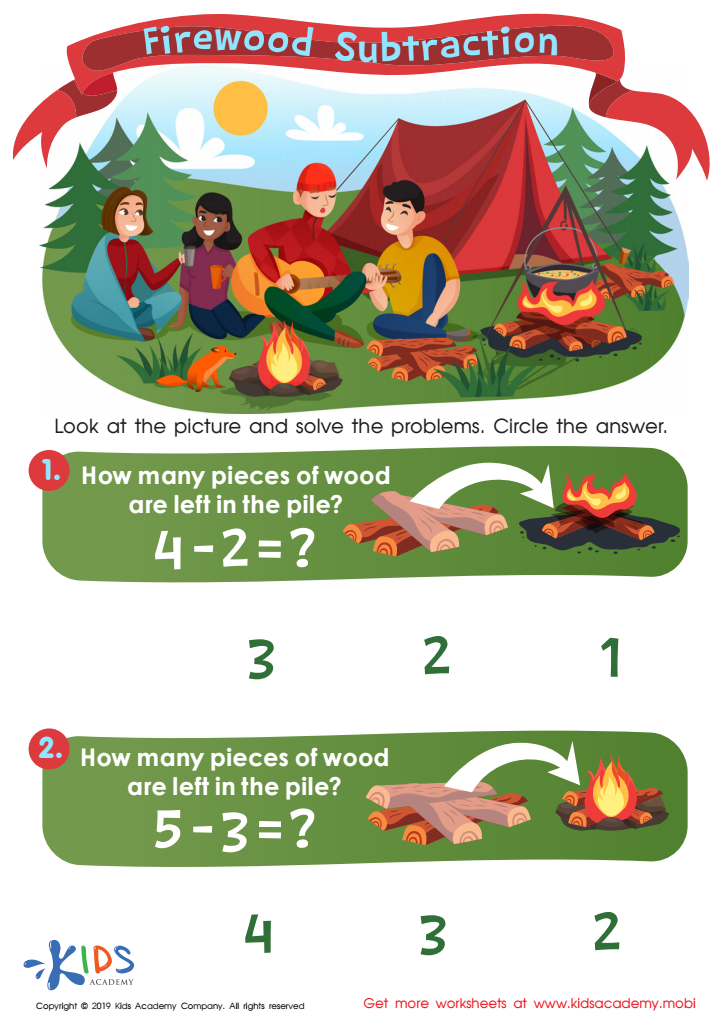

Firewood Subtraction Worksheet
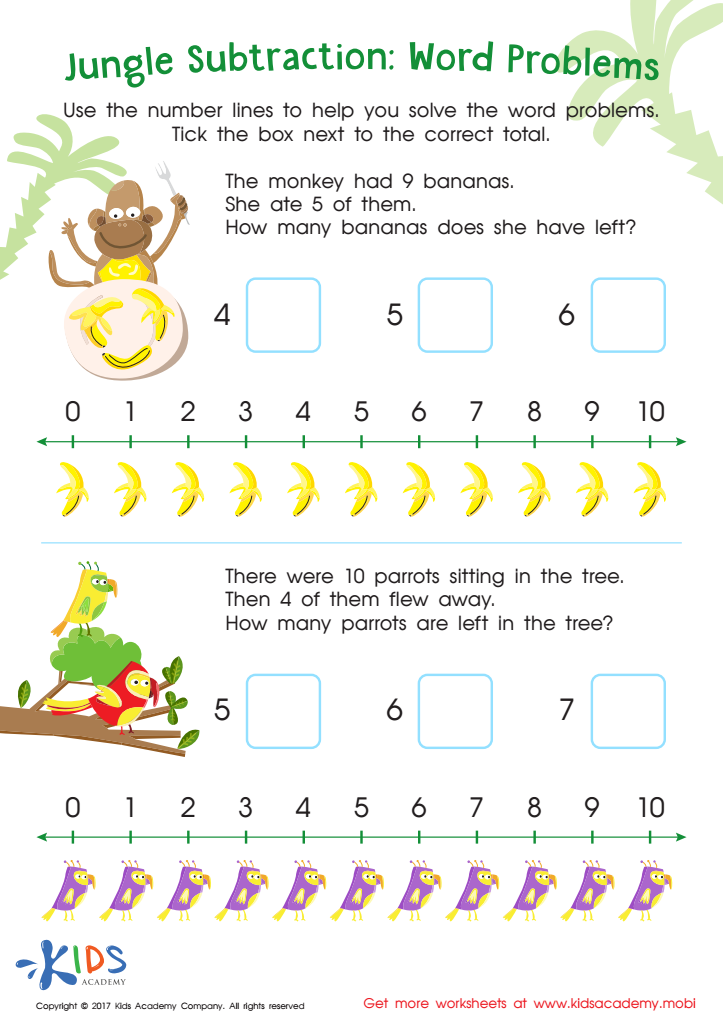

Jungle Subtraction Word Problems Substraction Worksheet
Subtraction practice word problems are crucial in the development of mathematical skills for children ages 5-9. At this stage, kids are transitioning from intuitive grasping of numbers to more structured problem-solving methods, making it an essential period for learning fundamental arithmetic concepts like subtraction.
Subtraction word problems offer a contextualized learning experience, bridging the gap between abstract numerical concepts and real-world applications. This helps children understand the "why" behind the mathematical operations, fostering deeper cognitive connections. Real-life scenarios such as sharing snacks or counting toys make learning engaging and relatable, holding children's interests and promoting retention.
In terms of cognitive development, tackling word problems enhances critical thinking, reasoning, and comprehension skills. It requires students to read, visualize, and interpret the problem before performing calculations, thus bettering their overall cognitive processes.
Moreover, consistent practice with word problems improves mathematical fluency and confidence. Children who frequently work through these problems are better equipped to handle more complex mathematical challenges in the future. For parents and educators, facilitating and encouraging this form of practice helps ensure that students build a strong, lasting foundation in mathematics, setting the stage for academic success across disciplines. Overall, it's a vital part of education that supports comprehensive development in young learners.

 Assign to My Students
Assign to My Students
















